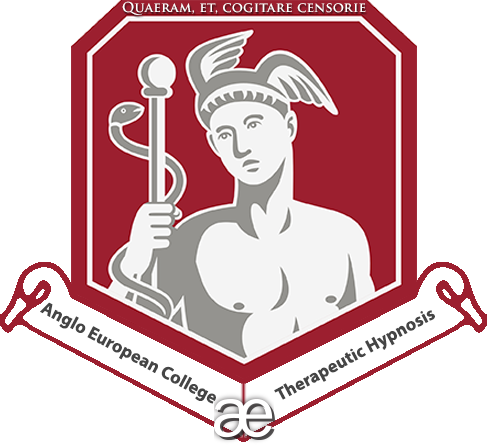In this video, I talk about why hypnotherapists and hypnotherapy training schools need to learn how to take criticism, and how it will benefit them and this entire field as a result. I go on to explain some of the defensiveness I encounter in this field and how to stop that. Have a watch here….
Educational establishments such as conventional schools, colleges, universities will tend offer up the stance of fierce critics as well as those supporting a particular viewpoint, why not hypnotherapy schools too? Even if the teacher sympathises with a particular side, the critique of that side is taught and explored; this is quality education. This is how a student learns, this is how a field of study grows. When hypnotherapy trainings simply say “this is the way it is” and do not allow for any critique, it halts potential for growth and development and currently the field of hypnotherapy is held back by so many people doing just that. Here are some links to some of the topics and articles I referred to in this video:
These are subjects I have been writing about for years, read further about them here:
a) Are Hypnotherapists Intelligent Enough To See Both Sides?
b) What Can Hypnotherapists and Hypnosis Professionals Learn From Feuding Hypnotists?
Likewise, there are then those individual hypnotherapists and hypnotherapy training schools offering adjunctive CPD techniques that they have devised. Many are excellent. Yet the teacher gets defensive when asked for evidence of that technique. They get defensive when a criticism is offered up. They get defensive if someone cannot seem to get it to work for them. They take anything other than glowing praise as an attack. It is crazy. They need to listen, be respectful and open of what is being said, and use it as an opportunity to grow, develop and ultimately refine what is being offered. Some just dismiss such requests and feedback with an anti-intellectual stance, I’ve recorded a video about this before right here:
a) The Cult of Anti-Intellectualism and Ignorance In the Field of Hypnotherapy and Hypnosis.
When engaging in training, I tell my students not to just take my word for things, but to go and explore the field and develop an informed and well-educated stance of their own based upon the evidence and their own preferences. The importance of critical thinking is pretty absent in hypnotherapy trainings. When we see the need for it in life in general these days, surely we can recognise how important it really is within a therapeutic environment and within a mental health field. Here is some more reading on this topic:
a) Anecdotal Hogwash From Hypnotherapists and Why Hypnotherapists Need Critical thinking Skills.
b) Critical Thinking: Its Importance and Ways to Improve It.
Critical thinking should be central to hypnotherapy training, and should be taught on all courses. I wrote about that point here:
a) Hypnotherapy Training: I’m Frothing at the Mouth About Why Hypnotherapists Need More Advanced Training.
We need to be comfortable asking questions of our hypnotherapy training, not hiding in fear in case the trainer gets defensive. Likewise, we need to get better at thinking for ourselves because so many hypnotherapists want spoon-feeding. A good quality hypnotherapy training course should have given you all the knowledge and skills required to do hypnobirthing or offer your clients a hypnotic gastric band. Instead, we are happy to pay someone else to package up our existing knowledge for us and spoon-feed us on how to do that.
I recorded this video about why I believed all hypnotherapists needed to know what Shoshin is. You can read it here:
a) Why All Hypnotherapists Need To Know What “Shoshin” Is.
“In the beginner’s mind there are many possibilities, but in the expert’s there are few.”
― Shunryu Suzuki, Zen Mind, Beginner’s Mind
Shoshin is also referred to as “beginner’s mind” and it is not just hypnotherapists who need to adopt this. It is seasoned and influential hypnotherapists who have big followings, it is hypnotherapy trainers and educators who need to know that what they offer is not everything to everyone. They need to adopt shoshin and become humble about what they offer. They need to accept that feedback and criticism is how they will grow and develop and ultimately raise standards in our field.
Learn how to take criticism well, like a grown-up. Recognise that everything we do and say is likely to have flaws and you know what? That is ok. Nothing is perfect, so why not accept that?
As I wrote on my personal website’s blog, How to Effectively Deal With Criticism;
“Criticism is information that will help you grow.” — Hendrie Weisinger
“You are a glorious, shining sword and criticism is the whetstone. Do not run from the whetstone or you will become dull and useless. Stay sharp.” – Duane Alan Hahns
Come on hypnotherapy trainers and training schools get on board with this, eh? … and stop being so defensive…..
=====
Has this piqued your interest in this field? Then have a read of these pages:
1. Would you like a satisfying and meaningful career as a hypnotherapist helping others? Are you a hypnotherapist looking for stimulating and career enhancing continued professional development and advanced studes? Explore the pages of this website.
Adam Eason’s Anglo European training college.
2. Are you a hypnotherapist looking to fulfil your ambitions or advance your career?
Hypnotherapist Mentoring with Adam Eason.
Likewise, if you’d like to learn more about self-hypnosis, understand the evidence based principles of it from a scientific perspective and learn how to apply it to many areas of your life while having fun and in a safe environment and have the opportunity to test everything you learn, then come and join me for my one day seminar which does all that and more, have a read here: The Science of Self-Hypnosis Seminar. Alternatively, go grab a copy of my Science of self-hypnosis book.

